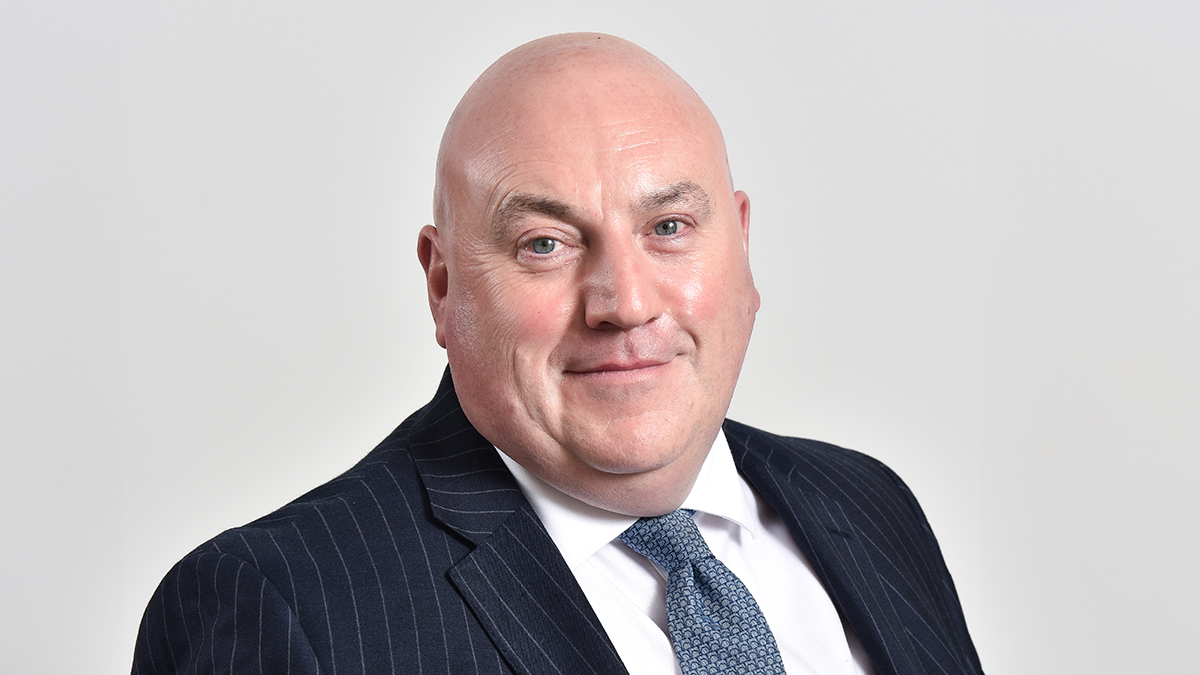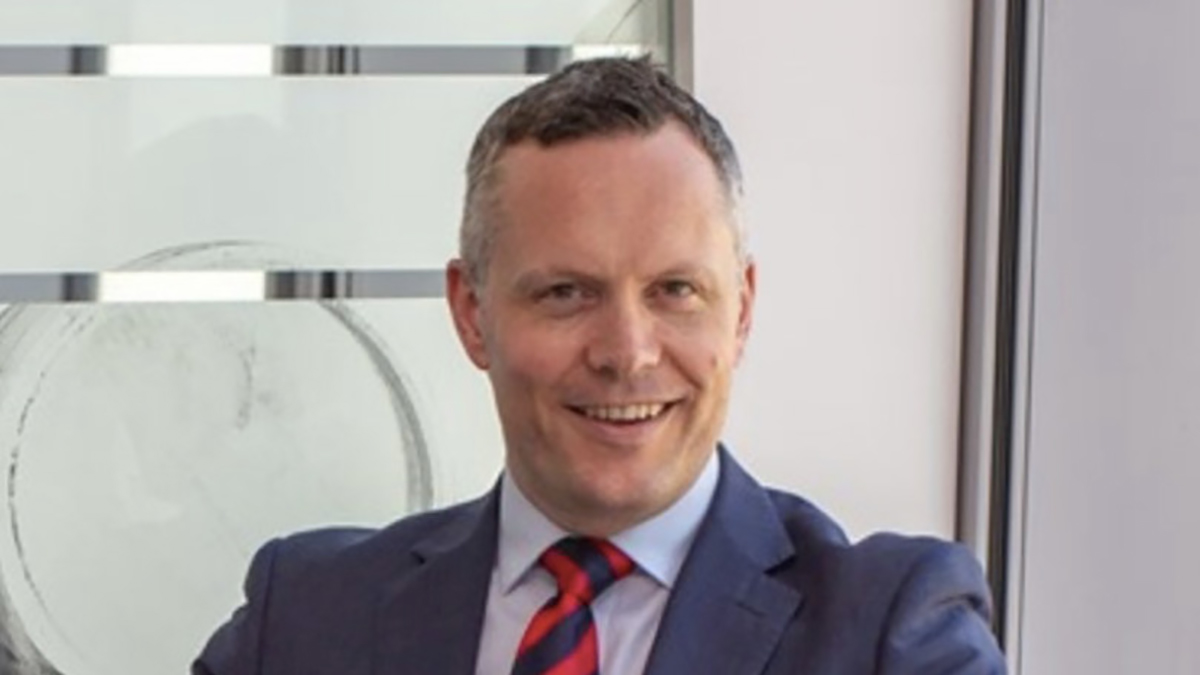Marine is firmly part of SiriusPoint’s vision: Smyth
MGA enquiries are ‘coming in thick and fast’, global specialty re/insurer’s new head of marine, Stephen Smyth, says
SiriusPoint’s Stephen Smyth describes the state of play in marine underwriting, the enduring appeal of Lloyd’s and his outlook on the international market
Marine liability will come under greater scrutiny at Lloyd’s next year, according to Stephen Smyth, the new head of marine at SiriusPoint.
A veteran of the marine market, Smyth joined the specialist re/insurer in October as active underwriter (subject to Lloyd’s regulatory approval) for its Lloyd’s syndicate 1945.
In an interview with Insurance Day, Smyth says marine liability is expected to “go into Decile” for some syndicates for 2024 because “the tail has started to catch up with them”.
Launched in 2018, Lloyd’s Decile 10 initiative is designed to bring underperforming syndicates and classes of business back to profitability.
“The back years have had adverse development, which has been a combination of claims inflation and increased court awards in the US,” Smyth says. “Now, if you want to write the excess lines book, the attachment points are very different because people are adjusting their risk appetite on excess liability business.”
Pointing out some players pulled out of marine liability this year, Smyth says “syndicates with a heavily excess liability book are saying, ‘If we can’t turn this around, we might as well just exit it as a line of business’.”
He continues: “Every syndicate will need reinsurance to operate but if it’s not available or it’s cost-prohibitive, it means their business plan doesn’t stack up.”
“It’s thought 40% of the world’s cargo that is moved by sea is actually uninsured, so as an industry we’re looking at alternative distribution methods to see how we can close that gap, how can we get to those people who don’t buy cargo”
Stephen Smyth
SiriusPoint
The risk of deterioration in liability classes in the back years is one of several risks facing the market, marine and non-marine. Others include fire on board vessels, misdeclared cargo, value accumulation and increased repair costs, which all remain issues that need to be carefully considered, Smyth adds.
“We all think we’re writing good business, but it’s important never to be complacent, to always keep our eye on what’s going on in the market and further afield in the wider economy,” he says.
Decile 10 has helped produce a significant and ongoing market correction. Smyth says: “There’s been an adjustment of risk appetite, an increase in rates and a tightening of terms and conditions. Reinsurers towards the end of last year were saying ‘double, double, half’ – double retention, double the price and half the ceding commission. That’s obviously necessitated an evaluation of business plans, not only with Lloyd’s, but internally as well.”
Are Lloyd’s rates sustainable? “More than they were a few years ago,” Smyth says, “but companies are still carrying rate, because the market needs them to.”
He continues: “We’ve got rising costs of claims and so companies are being far more forensic in their review of their own portfolio. It’s not just about pricing; it’s about terms and conditions as well.”
On competition, Smyth says Lloyd’s needs to stay relevant and continue to innovate. “There’s Norway, Germany, Sweden, Singapore, China, North America and Latin America, because the marine market is global by its nature. These markets have always been competitive and always will be. Each one has strength in certain classes, such as the Nordics in hull and the UK and European market in cargo.”
Smyth highlights Lloyd’s Lab. “This isn’t just for insurtechs and startups. It’s all about the goal of sharing risk because some risks are too big for any one organisation to underwrite 100%. Lloyd’s has the fantastic ability of paying claims, backed by the Lloyd’s Central Fund. People often underestimate that, but it proves just how strong Lloyd’s is as an entity.
“There’s the best atmosphere at Lloyd’s since the pandemic as a result of the refurbishment,” Smyth says, referring to the Underwriting Room. “It’s a very efficient way to do business, in terms of the face-to-face interaction, because there’s nothing better than actually seeing the whites of a broker’s eyes.”
Is the marine market hard or hardening? “The market is the market. Sometimes conditions are better for underwriters than other times. Our view at SiriusPoint is market conditions are always good, because there’s always opportunity, and those opportunities can come in various forms,” Smyth says.
“How can rates be maintained? It’s all about underwriting discipline. If you don’t understand the risk, you shouldn’t be deploying underwriting capacity in writing that risk.”
New partnerships
More capacity clearly came into the Lloyd’s marine market this year and more, though probably not as much, will enter in 2024, Smyth says. Whatever the trend proves to be, he stresses SiriusPoint always intended to add marine to its product lines.
Smyth was handpicked by Scott Egan, who became SiriusPoint’s chief executive in September last year, and Rob Gibbs, who joined in December as chief executive of its international business.
“Obviously, the more attractive rates in the marine market helped support them when they took the decision to add marine to the board but, wherever they’ve worked, Scott and Rob have always had a marine division and Rob’s first words to me were: ‘Steve, we’re missing marine.’”
Smyth joined SiriusPoint from Travelers, where he built a specialist insurance operation for UK marine risks as managing senior underwriter of marine. Before Travelers, he was head of UK regional marine and head of office at Beazley. Before that, he had marine underwriting roles at Allianz, AIG and Commercial Union.
As well as developing SiriusPoint’s marine capabilities in the London market, Smyth is tasked with supporting its Stockholm-based marine team in international markets. As part of this, SiriusPoint and Nordic Marine Insurance, also based in the Swedish capital, recently announced a new strategic partnership. It is the second managing general agent (MGA) to have emerged through SiriusPoint International’s MGA Centre of Excellence, which launched this year to deliver a collaborative onboarding experience for new MGA partners. The first MGA to emerge from this, in August, was UK property/casualty MGA Eaton Gate.
Ever since it was announced Smyth was joining SiriusPoint in October, further MGA opportunities “have been coming in thick and fast”, he says. Although he cannot share details of potential MGA partnerships, as they are subject to non-disclosure agreements, Nordic Marine is a good illustration of what SiriusPoint is looking for.
Smyth says: “MGA distribution is a core part of our international growth strategy, where we develop partnerships with MGAs, based on their risk appetite alignment and synergy with our own expertise, our own vision and our own values. Nordic Marine has a business we would find it difficult to replicate in a reasonable timeframe and for a reasonable cost as well.”
Smyth will be working alongside the other underwriting leads at the MGA Centre of Excellence, such as in accident and health, energy and international casualty. “I’ll see how I can optimise the performance of their existing portfolios, to deliver our growth and profitability targets, so we’ll work together to evaluate new opportunities and develop our business for syndicate 1945.”
SiriusPoint will have “at least another two or three” MGA partnerships in the coming months, “depending on how quickly we can get them across the line”, he says. Importantly, these partnerships would extend SiriusPoint’s reach beyond London and Europe to the Far East and the Americas, he adds.
Global opportunity
Smyth highlights growth in global trade has been “muted” but is still expected to increase slightly less than 2% this year and slightly more than 3% next year.
“It’s thought 40% of the world’s cargo that is moved by sea is actually uninsured, so as an industry we’re looking at alternative distribution methods to see how we can close that gap, how can we get to those people who don’t buy cargo. It might be they choose not to or it might be they’re ignorant to the risks” Smyth says.
Shipbuilding is expected to grow from slightly less than $150bn this year to about $185bn in 2028, he adds.
“There’s lots of investment going on to address supply chain challenges and so we think the opportunities in marine can only grow,” he says. This growth will be supported by new technology, which is “getting cheaper all the time”.
He continues: “Several years ago it was almost cost-prohibitive but there are now signs on the horizon for a greater level of autonomous shipping, including container vessels. We’ve already seen autonomous surface vessels operating in ports in and around Europe, so the technologies are there and are going to get more widespread. However, we can’t compromise risk quality and while technology is an enabler, it also comes with risks which need to be understood.”
Smyth will be recruiting for his marine team over the coming months. “It’s an open book how many underwriters we hire,” he says. “If an opportunity calls for additional expertise then we will go out and hire that additional expertise.”
He concludes: “This is my 33rd year in marine and I’ve got a strong ambition to deliver a best in class marine business for SiriusPoint.”



